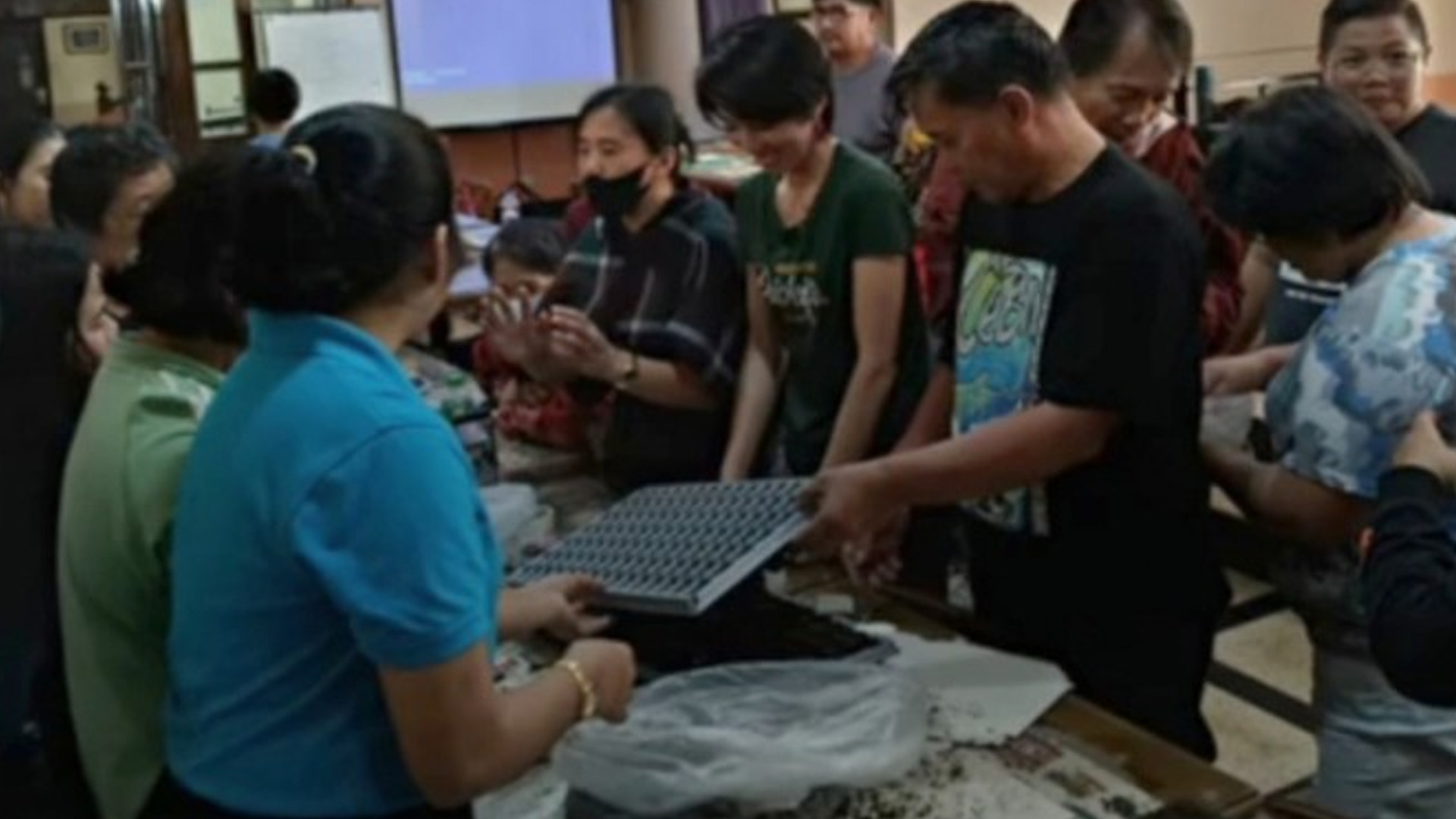At least 60 members of two farmers associations here are now being trained on hydroponics farming as part of the government’s urban agriculture program aimed to ensure food sustainability and provide additional income.
Dr. Aida Pagtan, chief of the Department of Agriculture-Cordillera Administrative Region’s (DA-CAR) Regional Agriculture and Fisheries Service (RAFIS), said the three-day training started on Sept. 10 and is being participated in by members of the Benin Farmers Association from Barangay Pinsao and the Pagbiyagan di Umili Organization of Barangay Dontogan.
“It is always for food sustainability and reducing the family’s expense on food, especially vegetables that are healthy,” she said in Ilocano in an interview Wednesday. “DA exists to sustain the food needs of the Filipinos.”
Pagtan said several technologies are being introduced to boost production not only for a family’s requirements but for them to have extra supplies that will help boost their income.
Part of this program is the construction of two hydroponics greenhouses measuring eight by 18 meters worth about PHP1.2 million, and equipped with solar panels that will allow the watering machines to run without cost on electricity.
Citing projections by urban gardeners, Pagtan said a 250-square-meter area planted with lettuce produces an income of PHP250 for every crop cycle.
With nine crop cycles possible, the farmer can have total sales of PHP10,000 with only PHP3,000 operating expense in a year aside from food on their table, she said.
“We see income from conventional urban gardening and use or adoption of technologies will surely have better income. This is why the DA wants to scale up urban agriculture not anymore for the family’s needs but for income and food for other people,” Pagtan said.
The DA also plans to reach out to schools for the “gulayan sa paaralan” (school vegetable garden) program, aimed to strengthen youth’s participation in food production, she added.
Emy Lou Cunning of the field operations division of the DA-CAR’s National Urban and Peri Urban and Agriculture Program (NUPAP) said the greenhouses are expected to have higher production since it uses a technology that shortens gestation period of green and leafy vegetables by about five days.
She said the construction of the greenhouses is ongoing so that members of the farmers’ associations who are currently undergoing the training will know how to properly use and manage the facility.
“The association members will take turns caring for their plants in the greenhouse while they still pursue their individual conventional way of production,” she added, noting that the association members will later on be trained on developing entrepreneurship and marketing. (PNA)







